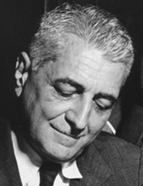

In a word, the success of Casa-grande & senzala boosted Gilberto Freyre's reputation and highlighted the novel approach his analysis represented to studies about Brazil. "New" could be the adjective used to summarize it since everything in the book was stamped with newness: the new historical subjects presented, that is, the senhor de engenho or sugar plantation owner, and the slave and the world around him; the new approach used which centred on the private sphere of the relations between these subjects, with the family as the key element and the binomial of the title as the expression of social life; the new explanation offered which, mindful of the teachings of Franz Boas (whose student he had been at Columbia), differentiated "race" from "culture" and emphasized the positive nature of miscegenation; the new sources used, such as books from the Holy Office, letters from Jesuits and other ecclesiastical documents, inventories and wills, travel books, notebooks containing modinhas [songs], recipes and etiquette, newspapers, novels, memoires, depositions and biographies, even iconography; the new prose that organized, articulated and expressed what his research and analysis led him to - a prose that was loose, fluent, lively and intense.
But the fundamental novelty, the one that was his greatest innovation and perhaps the main reason why he made such an impression, was in fact the whole book, which brought all these characteristics together in one single work manipulated by one single author. As had happened decades earlier with Os Sertões [Rebellion in the Backlands], (1902), Freyre's book showed a surprising interpretative force, which revealed to its readers aspects that had hardly ever, or never, been considered until then regarding the formation of Brazilian society - and, for this very reason, the work started to be favourably compared to Euclides da Cunha's masterpiece. Moreover, Freyre promised even more since, as he said almost at the end of the preface to Casa-grande & senzala: "the aim of condensing all the work into one single volume was something I unfortunately did not manage to do. The material overflowed, exceeding the reasonable limits for a book. The study of other aspects of the matter will go into a second book - which in fact might be even more greatly developed" (CGS, 2003 [1933], p. 50-51).
